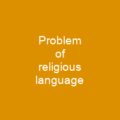Quakers: A Unique Path to Christianity
Imagine a religious community that has been navigating the complex landscape of faith for centuries, with its roots deeply embedded in 17th-century England. The Religious Society of Friends, commonly known as Quakers, is a fascinating group whose beliefs and practices have evolved over time, yet they remain true to their core principles. Are you curious about what makes Quakers so distinctive? Let’s dive into the rich history and diverse beliefs that define this unique community.
The Emergence of Quakerism
How did Quakerism come to be? In the midst of religious turmoil during the English Civil War, George Fox claimed a profound revelation: it was possible to have a direct experience of Christ without the need for ordained clergy. This message resonated with many who were disillusioned by traditional church practices and structures. As Fox traveled across England, preaching and teaching, he attracted followers who shared his vision. The name ‘Quaker’ initially arose from ridicule but eventually became widely accepted, symbolizing the profound reverence and respect Quakers have for God.
Core Beliefs and Practices
At the heart of Quakerism lies a belief in the inward light guiding humans, which is often referred to as the ‘inner light’ or ‘inward light of Christ.’ This concept emphasizes that every person has direct access to divine wisdom through the Holy Spirit. Quakers traditionally avoid creeds and hierarchical structures, focusing instead on personal spiritual experiences and communal worship.
Quaker worship can be either programmed or unprogrammed. Programmed worship involves prepared messages, hymns, sermons, Bible readings, joint prayers, and silent worship. Unprogrammed worship is more spontaneous, with participants gathering to ‘wait upon God’ without a specific agenda or structure. This form of worship often lasts an hour and ends with a handshake exchange among participants.
Historical Impact and Contributions
The impact of Quakers on society has been significant. They were known for their plain dress, refusal to participate in war, opposition to slavery, and teetotalism. These principles led them to found banks, manufacturers, and philanthropic efforts that have left lasting legacies. For instance, the American Friends Service Committee (AFSC) was awarded the Nobel Peace Prize in 1947 for their dedication to peace and the common good.
Quakers also played a crucial role in social reforms such as abolitionism. Nine of the twelve founding members of the Society for Effecting the Abolition of the Slave Trade were Quakers, and by the beginning of the American Revolutionary War, few Friends owned slaves. Their efforts led to the petitioning of the United States Congress to abolish slavery in 1790.
Divisions and Diverse Beliefs
Over time, Quakerism has split into various sub-groups based on theological differences and practices. Some key divisions include:
- Gurneyite Friends: Emphasize the balance between Bible authority and direct experience of God, seeing Jesus Christ as their Teacher and Lord.
- Holiness Friends: Combine ‘waiting’ worship with practices found in other Protestant churches, including readings from the Bible and singing hymns.
- Liberal Quakerism: Emphasize critical Biblical hermeneutics, social gospel, and inner light. They prioritize good works, pacifism, and living simply while rejecting religious symbolism and sacraments.
- Universalist Friends: Affirm religious pluralism, recognizing multiple paths to God and valid non-Christian understandings of the divine.
Modern Quakerism in a Global Context
Today, Quakers are organized into independent Yearly Meetings, which have sometimes split over doctrinal differences. Some unite around shared beliefs, while others belong to the Friends World Committee for Consultation (FWCC). The FWCC has four sections representing different regions and several associated organizations.
The diversity of views among Friends on issues such as same-sex marriage reflects the wide range of theological perspectives within the community. While some meetings recognize it, others do not. This variety underscores Quakerism’s commitment to individual spiritual journeys and personal discernment.
Conclusion
Quakers have a rich history marked by innovation, social activism, and a deep commitment to spiritual integrity. From their origins in 17th-century England to their global presence today, Quakers continue to inspire with their unique approach to faith and service. Whether through programmed or unprogrammed worship, their message of peace, equality, and direct divine guidance remains as relevant today as it was centuries ago.

You want to know more about Quakers?
This page is based on the article Quakers published in Wikipedia (retrieved on January 28, 2025) and was automatically summarized using artificial intelligence.






